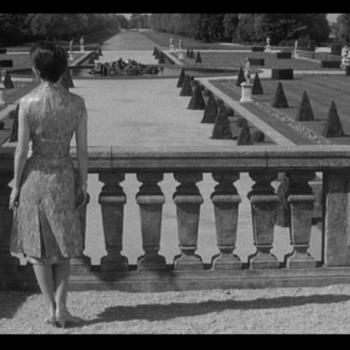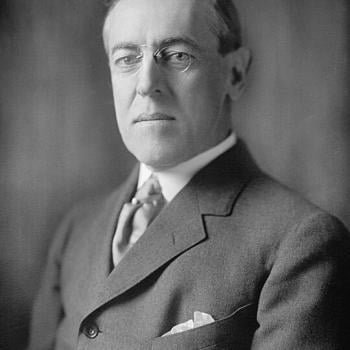There was a time, and not such a remote one, when critically re-examining Church history was very much in vogue. Blessed Pope John Paul II led the way, visiting Yad Vashem and the Ummayad mosque, expressing regret for the Crusades and for innumerable offenses by Christians against Jews. But by some unspoken consensus among Catholic scholars, pundits, and other opinion-makers, that time has passed; those gestures sufficed. In fact, the new trend is to label any criticism of the Church as malicious. Phillip Jenkins calls anti-Catholicism "the last acceptable prejudice in America," and he attributes to this prejudice everything from common interpretations of the sex-abuse scandal to attacks on the wartime diplomacy of Pope Pius XII.
From some angles, the implications for Jews of this new defensiveness look a little alarming. In a 2009 opinion piece for National Catholic Reporter, "Hard Truths About Jews and Catholics," John Allen, Jr. argues that Jews have served as cat's-paws in intra-Church disputes. "The majority of trailblazers in relations with Judaism have tended to come from the more liberal wing of the church," writes Allen. "And at times—without any ill will, and for the most part inadvertently—some seem to want Jews to make the case for church reform."
Since Jenkins names "liberal Catholics" among the salesmen of anti-Catholicism, I wonder, in my darkest moments, whether some of the opprobrium he (along with many, many others) heaps on those liberals could fall on their unwitting Jewish allies. Could the hermeneutic of continuity give rise, by some murky process, to a hermeneutic of bash the Jew-ity?
I note with great relief that, excepting the occasional facepalm statement from William Donahue or Cardinal Babbini, nothing of the sort has happened. No, the current fashion is to claim kinship with the Jews—one group of sufferers to another. When Peter Viereck called Catholic-baiting "the anti-Semitism of liberals," he was making an aperçu. Now that the sex abuse scandal has left so many Catholics feeling battered and embattled, Catholic voices are presenting it as gospel.
In last year's Good Friday homily, Fr. Raniero Cantalamessa put this most baldly. Supposedly quoting a Jewish friend, he preached that attacks on the pope reminded him "of the most shameful aspects of anti-Semitism." The following month, Joseph Bottum expressed the same idea more cautiously. "In moments of uncertainty and doubt," he writes, "the people of the West go harking back again to their old gods and traditional answers—blaming the Jews and the Catholic Church."
Statements like these should probably move me to compassion. They obviously emerge from a place of profound pain and great fear. I could read them as a backhanded affirmation of the Jews' historic aggrieved status. Want the world to appreciate your sense of persecution? Compare yourselves to the Jews—theirs is still the gold standard.
But I can't. To me, they sound like the beginning of a strange new supercessionism: we're the real victims now, so if you'll excuse us, we've got this cross to bear.
It's hard to tell how many Catholics, if any, are thinking in precisely this direction. The Church is huge and varied, with its brain trust and its worker bees. For anyone to do so would require a gross and willful distortion of scale. The Church did get a Jewishly bad time behind the Iron Curtain; in France, under the Jacobins; in Mexico, under the Calles government; and in Spain, under the Loyalists. Bonaparte and Bismarck, Queen Bess and King Billy were no Cyrus the Great, either. But pleading that a clutch of catty columns by the likes of Maureen Dowd has brought Catholics into the heart of the Jewish experience is simply obscene.
"No, people," thinks I with a grimace, whenever I hear Catholics complain of ill-use. "You've got a long, long way to go." And this is a terrible thing. I'm addressing as "You" people who should be part of a "We." I'm no better able to share in the Church's present-day sorrows than I am to share in her past glories. Can there be a better definition of imperfect communion than that?
Meanwhile, I'm hacked off that the majority of Catholics are deaf to my sensibilities. I'm complaining about others' complaints. Could anything be more fundamentally absurd?
Maybe not. But, at least according to Canadian-Jewish writer Michael Wex, neither could anything be more fundamentally Jewish. "Antiphonal grousing," he writes, "pervades the Old Testament." The Jews complain about God; God complains about the Jews. "What is Hebrew prophecy," Wex asks, "but kvetching in the name of God?"
Until the Messiah comes "there's little room for anything but pining and dissatisfaction." Change that to "until the Messiah returns," and he's on.
This pedigree does lend a certain dignity to my peculiar position. I may never achieve the serenity of the snub-nosed cradle Catholic. But who needs that, really? Living with a sense of exile in my own home, I get it all, both halves of the Judeo-Christian tradition, one-stop shopping. Besides, to the extent that I am Jewish, I'll always be in demand. Liberals want to employ me; everyone else wants to be me. I can't say generally whether these are interesting times to be a Jew, but they're definitely interesting times to be a Jew if you happen to be Catholic.





